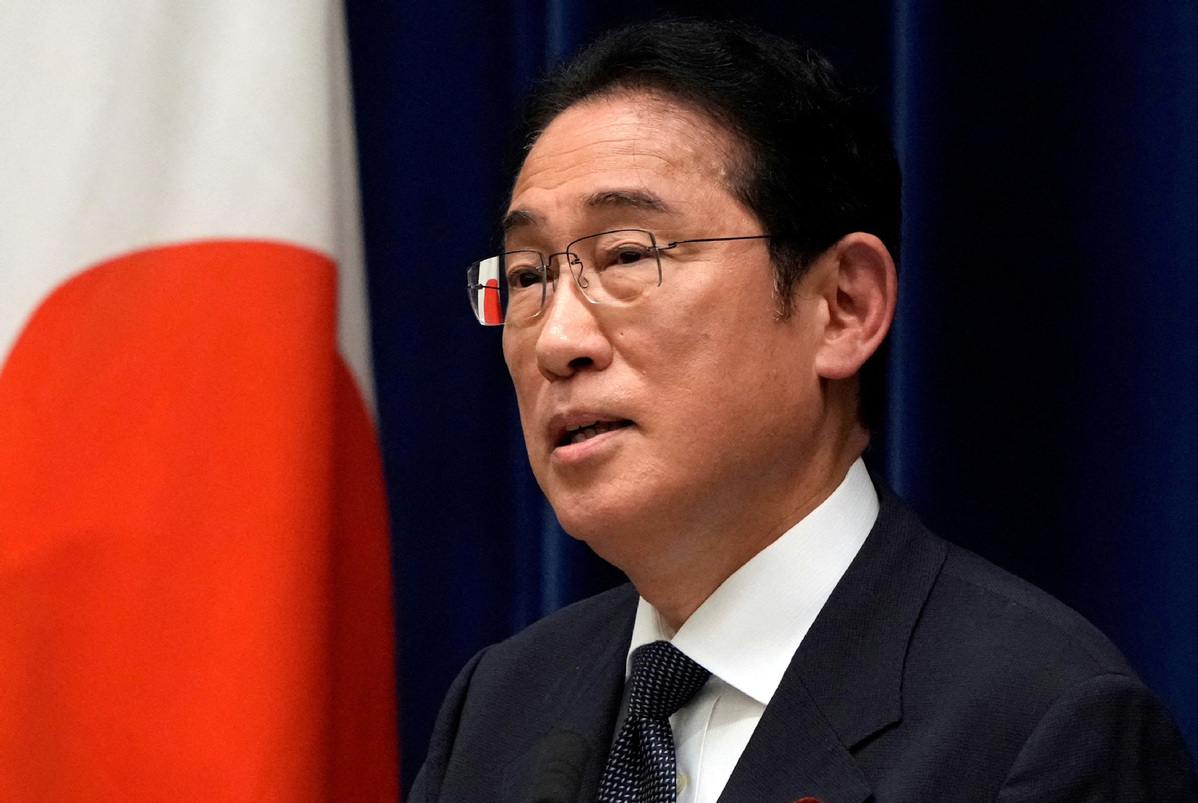Kishida faces pressure ahead of LDP election


Though the election for the post of president of Japan's Liberal Democratic Party is more than two months away, several big leaders have thrown down the gauntlet to current leader and Japanese Prime Minister Fumio Kishida.
Former LDP secretary-general Shigeru Ishiba and Digital Transformation Minister Taro Kono have made it clear they are vying for the top job in the ruling party.
Ryota Takeda, the former minister for internal affairs and communications, organized a dinner on July 1 for Ishiba and former prime minister Yoshihide Suga, who has openly urged Kishida to step aside following his handling of a political fundraising scandal, saying the prime minister should take responsibility for it, the Nippon News Network reported.
Ishiba is expected to get the faction led by Suga and the group chaired by another former LDP secretary-general Toshihiro Nikai on board. The Sankei Shimbun, a Japanese national daily, considers both Suga and Nikai as kingmakers in the LDP.
Ishiba has unsuccessfully run for LDP president four times in the past.
Japan's newspaper Asahi Shimbun said Ishiba, who enjoys broad support of the party's rank and file, may have an advantage over other candidates this time as criticism continues over LDP's dependency on factional politics. Ishiba does not belong to any faction.
A Kyodo News poll earlier this month showed that only 10.4 percent of the respondents want Kishida to be reelected. Ishiba is seen as the most suitable replacement, with 26.2 percent of respondents supporting him.
Meanwhile, the LDP is desperate to improve its image tarnished by the fundraising scandal involving the party's factions.
The scandal, in which some LDP lawmakers are alleged to have received thousands of dollars in unreported funds, poses one of the biggest challenges for the party.
In the aftermath of the scandal, the ruling party lost three lower house seats in the parliamentary by-elections held in April. It won two races and lost six in Sunday's by-elections to the Tokyo Metropolitan Assembly, falling way short of the party's goal of winning in four or more districts across Tokyo.
Liu Jiangyong, professor of international relations at Tsinghua University, said the scandal has caused a stir in Japan's politics. "It is not a one-off case but a collective infraction of the Political Funds Control Act by the higher-ups in the LDP factions," he said.
"As the LDP has a super-majority in Japan, its politicians dare to defy public opinion," Liu added.
Kishida is also facing a strong headwind from within the party.
Pollsters from the Asahi Shimbun newspaper found in mid-June that among the LDP chapters around Japan, only those in three prefectures supported Kishida's reelection, with five prefectures making their objections clear.
Euphemistic opposition
The newspaper believed the 39 prefectures had made their euphemistic opposition to Kishida's reelection clear.
Xiang Haoyu, a research fellow in the Department for Asia-Pacific Security and Cooperation at the China Institute of International Studies, said the "unusual public discontent" that Suga has spoken about drove home the point that Kishida is losing support in the LDP.
"Suga's remarks showed a heightened sense of crisis in the party," Xiang added.
As an LDP heavyweight, Suga should have been backing the Kishida administration. In September 2021, when Suga resigned as prime minister, Kishida was elected LDP leader with Suga's support, Xiang said.
Harumi Arima, an independent Japanese political commentator, said: "The LDP is increasingly worried that the party under Kishida's leadership might be ousted in the next general election."
Meanwhile, all public opinion polls are showing record-low support for the Kishida administration, which is dealing with its most serious crisis ever.
In the June 28-30 Nikkei Shimbun survey, the approval rating for Kishida's Cabinet stood at 25 percent, 3 percentage points down from May.
































